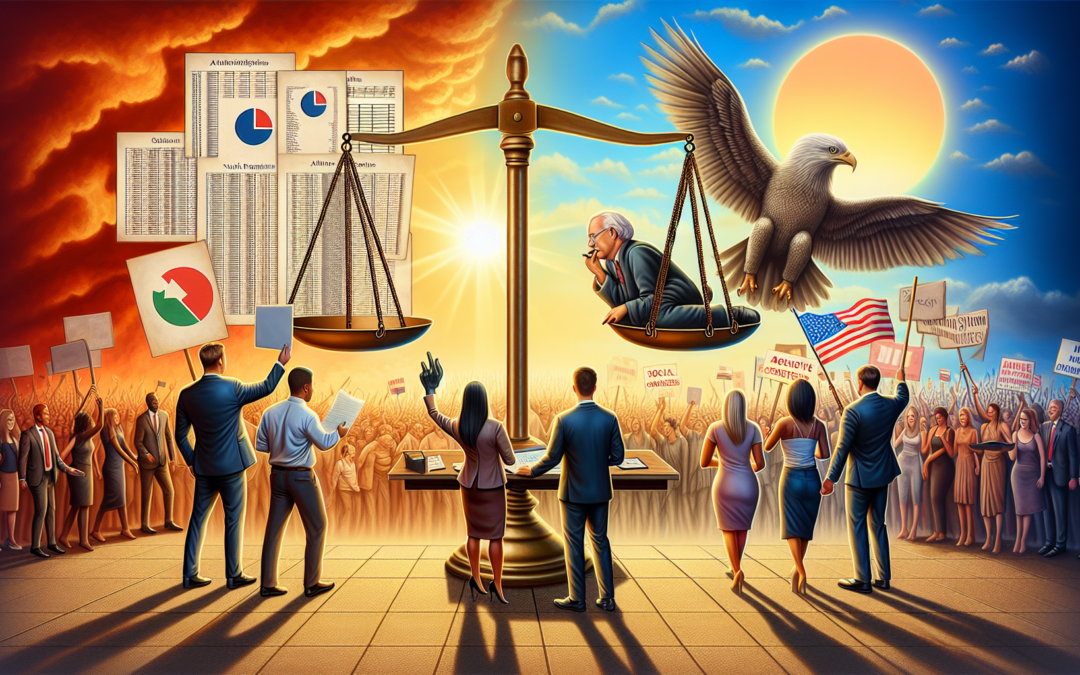The Thin Blue Line Under Scrutiny: Navigating the Intersection of Accountability and Wokeness
In recent years, law enforcement has increasingly found itself in the crosshairs of public debate, with officers standing as unintended focal points in a cultural battleground. Scenes of police interactions, sometimes mundane, sometimes contentious, are broadcast across a vast digital landscape, spurred by individuals who style themselves as “frauditors.” It’s a neologism granting newfound agency to the citizenry’s surveillance of authority, but for the men and women sworn to uphold the law, it can be a daunting, divisive force.
A Clarion Call for Transparency
In a democracy, transparency in governmental operations, including police work, is a fundamental expectation. Citizens deserve reassurances that the laws applied to them are enforced fairly, and frauditors see themselves as defenders of this democratic principle. This aspect has garnered both support and disdain within communities, highlighting a deep divide in perceptions about law enforcement.
For officers, there remains the daily burden of navigating public spaces with the uncomfortable knowledge that countless cellphone cameras or hidden microphones might be trained on them without warning. This ubiquitous presence can breed a tense environment, often turning even routine stops into performing arts under unwitting, skeptical audiences. The fight against crime morphs into a battle for controlling the narrative.
Guardians, Not Performers
Law enforcement officers are trained to protect communities through decisive action, patience, and fortitude—qualities essential to maintaining public safety. Yet, increased scrutiny through the lens of digital recording invites a new dilemma, where perception risks outweighing reality. Officers face the vexing challenge of staying focused while entrenched in the perpetual circus of public outrage and unwavering scrutiny.
Every move may now be subjected to reinterpretation, spliced from a nuanced whole into single moments that cascade across endless platforms. The constant balancing act between executing one’s duties and preserving spotless public relations becomes exhausting, especially when cultural caricatures sometimes reduce officers to symbols rather than mindful humans seeking to root out harm.
The Dehumanizing Effect of “Gotcha” Journalism
Especially in an era of polarized social discourse, the nature of engagements with frauditors often strays precariously close to the adversarial. “Gotcha” journalism, where the capture of controversial sound bites or footage is king, erodes trust between law enforcement and communities. What becomes spotlighted isn’t always the digitally glossed confrontation, overshadowing quieter stories of genuine connection and valor that seldom go viral.
These orchestrated confrontations risk demonizing officers, embedding suspicion and mistrust into the mark of the badge. In such settings, our officers struggle not only to enforce the law but to gallantly affirm their worth in a talking-head network that can predispose audiences to either depraved indifference or steadfast allegiance.
Seeking Common Ground
In adapting to this fast-evolving landscape, law enforcement faces pivotal questions: How do we protect the guardians while fulfilling the merits of oversight? Where can we position both accountability and grace in the same frame? Perhaps it begins with encouraging empathy, shifting the narratives to acknowledge humanizing efforts pursued by officers day in and day out in opaque anonymity.
Some solutions may lie in bolstering transparency efforts from within, embracing body cameras, and real-time reporting that looks to disarm the amplification of misinformation. Tactical communication smartly revamps existing public relations—all maneuvering prominently toward restoring equilibrium, encouraging genuine dialogue, and definitively re-calibrating trust.
A New Public Pact
Achieving a remedy for this tug-of-war between scrutiny and protection rests inherently upon both citizenry and civil servers committing to discard grandstanding in exchange for reasoned exchanges. This evolving relationship must accommodate compassion while safeguarding our constitutional ideals, harmonizing an awareness of flaws with an acknowledgment of valid service.
To explore more perspectives on these dynamics, feel free to tune into John Ligato’s insightful discussions here or catch this intriguing episode here. Join the ongoing conversation with John on his Facebook page.
In arenas where two worlds collide—the calculated resolve of enforcers and the ideological imperatives of oversight—the way forward isn’t through tearing down, but through connecting, building renewed trust spurred on by mutual authenticity and humility. Both society and law enforcement must remain resolute in writing the next chapter of American justice with deliberate care, where accountability and service stand in harmonious strength against the biting winds of cultural conflagration.

Recent Comments